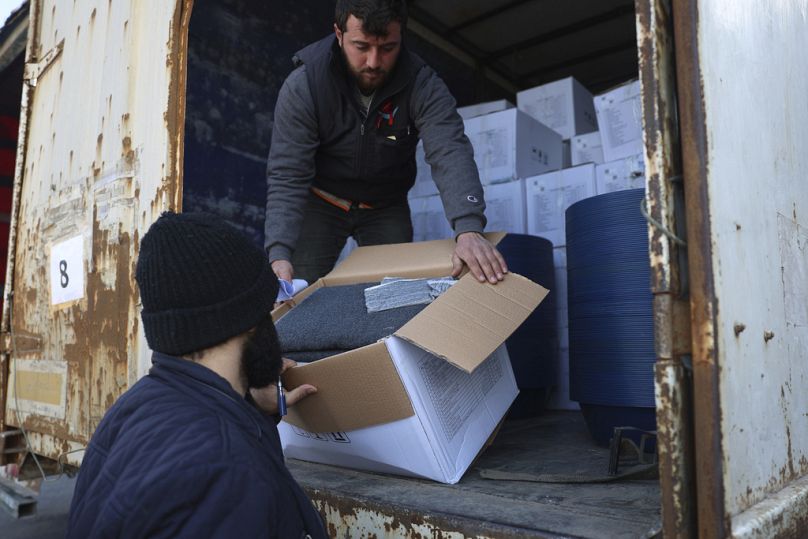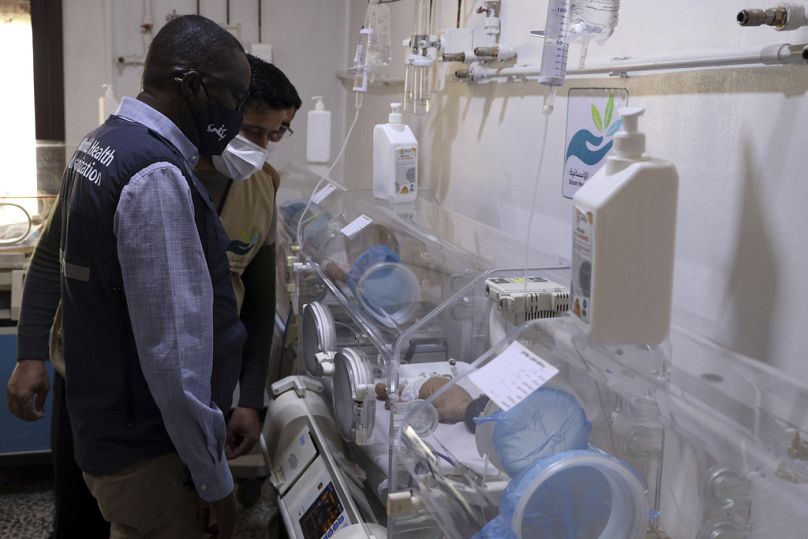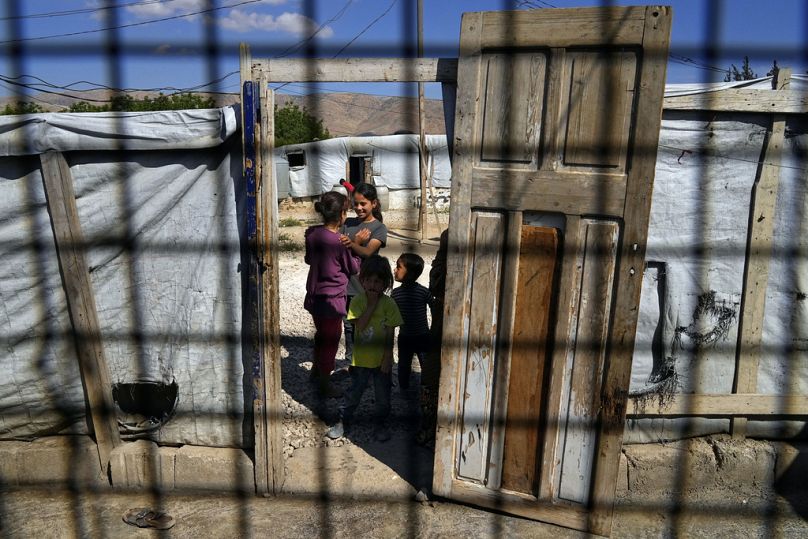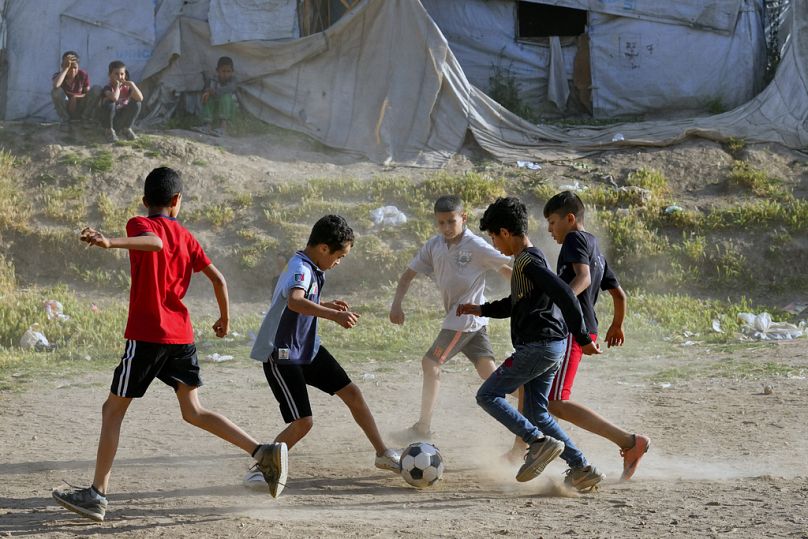At last year’s Brussels Conference, donors recognised that the protracted nature of the conflict in Syria requires a collective stepping up. Yet, one year on, this is yet to materialise, Harlem Désir and Tanya Evans write.
This week, the EU is hosting a conference on supporting the future of Syria and the region.
 ADVERTISEMENT
ADVERTISEMENT
 ADVERTISEMENT
ADVERTISEMENT
It is the most important pledging moment for the people of Syria. And it could not come at a more important time.
Today, more than 15 million people are in need of humanitarian assistance in Syria - the highest figure since the crisis began in 2012 and a 23% increase since 2020.
Over the past year, the economic situation in the country has deteriorated so much that millions can no longer afford to buy food to feed their families.
More than 90% of people in Syria are living below the poverty line, millions of whom are still dealing with the devastating impacts of the deadly earthquake four months ago.
Funding still depends on a handful of donors
While humanitarian needs inside Syria have soared, humanitarian funding has failed to keep pace.
Last year, the UN’s humanitarian response plan was just 49% funded. So far this year, only 11% of the funding needed has been received.
Not only is there a chronic shortfall of funding, but there’s a lack of diversity in the type of funding being provided.
Despite repeated commitments to diversify the humanitarian funding base, the system is still reliant on just a handful of donors.
Many of these donors have, understandably, kept their focus on the emergency response.
This funding continues to save lives in Syria. It could save even more if it was fully funded.
However, it’s also clear that a longer-term view is needed to move beyond emergency programming — such as restoring civilian infrastructure and the provision of basic services that have been devastated by 12 years of war.
Collective stepping up is needed
One approach that could help the people of Syria to rebuild their lives would be to ensure greater investment in early recovery projects, which aim to restore basic services and reduce dependency on aid.
This could take the form of restoring water systems and healthcare infrastructure or supporting livelihoods and local value chains.
These are medium to long-term investments that build resilience and equip people to withstand future shocks.
At last year’s Brussels Conference, donors recognised that the protracted nature of the conflict in Syria requires a collective stepping up of these sorts of early recovery efforts.
Yet, one year on, this is yet to materialise.
As donors convene for this year’s conference, here are four key ways the EU needs to work with the international community to both address the sky-high level of urgent needs in the country and support people to rebuild their lives.
Long-term, flexible funding is better in the long run
Firstly, it’s clear that there can be no genuine recovery for the vast majority of Syrians unless we are able to carve out a lasting political solution to the crisis and a principled humanitarian response that addresses people’s urgent needs and fosters greater self-reliance.
As the region’s largest donor, the EU has a key role to play in galvanising support from the international community to significantly ramp up funding and to ensure this is not a sticking plaster but is geared towards long-term solutions.
Second, rather than using either emergency response or early recovery as a blanket solution, humanitarian organisations in Syria need to be empowered to decide which tools are best and when.
For example, the IRC’s teams on the ground have seen the potential for cash assistance to transform lives — enabling people to identify their own household needs, boosting the local economy, reducing negative coping strategies, and helping women and girls to restore their sense of dignity.
As a single parent in Raqqa, Syria, told us: “I really needed this money. I felt that I owe no one and that I can do something. I felt important because I participated in the household expenses and I do not owe anyone for my daughter’s and my expenses.“
Third, while all funding is critical, it’s clear that short-term projects often do not enable our teams in Syria to make deep and meaningful impacts within communities.
Longer-term and more flexible funding would not only provide more sustainability within communities, guaranteeing the continuation of vital services but would also allow humanitarians to learn from, strengthen and improve their programming for the future.
We need to seize the opportunity in front of us to help those in need
Lastly, humanitarian funding is only effective if we’re able to access the regions where it is needed most.
The EU needs to seize the opportunity of this conference to rally support for the reauthorisation of UN-led cross-border aid in the UN Security Council before it is due to expire on 10 July.
This will ensure that more than 2 million Syrians in the northwest of the country can continue to have access to lifesaving assistance, including food, water, shelter and medical assistance each month.
It will also ensure the survival of many Syrian NGOs, which need to be at the heart of all efforts to bring about genuine recovery.
The loss of this vital and secure lifeline would be disastrous, putting millions of lives on the line and likely condemning millions of Syrians to even greater suffering in the year to come.
Harlem Désir is the Senior Vice President for Europe, and Tanya Evans serves as the Syria Country Director at the International Rescue Committee (IRC).
At Euronews, we believe all views matter. Contact us at view@euronews.com to send pitches or submissions and be part of the conversation.














